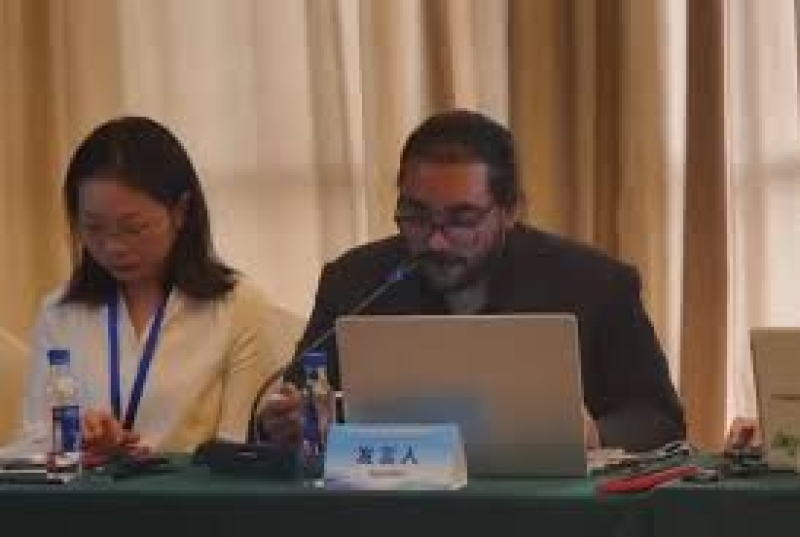- Khaleda now not fit for travelling: Medical Board |
- Panchagarh records lowest temperature 10.5°C so far this year |
- Christmas returns to Bethlehem after two years of Gaza war |
- কলাপাড়া মুক্ত দিবসে এবার সাড়া নেই কার |
- One killed, two injured in attack at Ctg meeting over marriage |
Bangladesh seeks regional effort to fight disinformation

Highlighting the significant risks of misinformation and disinformation to the well-being of people and society, Chief Adviser’s Deputy Press Secretary Apurba Jahangir has said regional cooperation is needed to fight against misinformation and disinformation with shared verification networks and truth mechanisms.
“So, let us be clear: the fight against disinformation can no longer be waged alone. We need regional cooperation, not in sentiment, but in structure. We need shared verification networks, cross-border fact-check exchanges and joint digital literacy programmes,” he said.
Apurba made the remarks while presenting a paper, titled ‘Securing Truth: Regional Cooperation and the Fight Against Disinformation in Bangladesh’, at the 10th China-South and Southeast Asian Think Tank Forum” held in Kunming, China.
Truth Mechanisms
He said if BRICKS, SAARC, BIMSTEC could build trade mechanisms, why not truth mechanisms?
The DPS said every false post has a human consequence. “In May, a rumour claimed a madrasah teacher had desecrated scripture—within hours, mobs gathered, police were attacked and a man nearly lost his life.”
In this age, he said, stories seem to be written not by journalists, not by historians, but by algorithms. “And they move faster than truth ever can. In Bangladesh, we live this reality every day.”
Between January and September of this year alone, Rumor Scanner Bangladesh, an independent fact checkers unit identified 2,754 pieces of verified misinformation. So, that is 10 each day, Apurba said, adding that last year, the number was even higher - 2,919 false stories.
Among them, 148 pieces came not from within our borders, but from across them—mostly from 72 south east regional outlets, spreading distortions about Bangladesh every two and a half days.
The DPS said disinformation is not only a domestic problem anymore; rather it is cross-border, algorithmic and often strategic.
“When truth becomes porous, sovereignty follows. It becomes extra territorial, extra judicial,” he said, adding that since the interim government assumed office on August 8, last year, their days have been punctuated by waves of distortion.
Apurba said a fabricated resignation letter of the Chief Adviser—shared tens of thousands of times before it could be corrected.
“For every lie, there is a consequence. A market shutters. A protest begins. A rumor turns into a riot. And yet, what is most dangerous is not the falsehood itself—it is how quickly people want to believe it,” he said.
Apurba said their region, South and Southeast Asia, shares borders not just of land, but of language, culture and media flow.
And in this shared space, he said, disinformation has become a regional dialect.
Work Ahead
Apurba said the interim government has placed disinformation within the framework of national security. Not because we fear speech, but because we fear silence born of confusion.”
He said their strategy, drawn from the experts rests on five pillars: a National Fact-Check Coordination Unit — connecting local and regional verification bodies, free from political interference; Curriculum Reform — introducing fact-checking and digital literacy into journalism and civics education; Public Campaigns — using television, influencers, and community media to teach verification; a Legal Help Desk — supporting victims of online misinformation and harassment and a Volunteer Network of Digital First Responders — citizens trained to flag and counter falsehoods in real time.
Apurba said these are not tools of censorship but they are tools of trust. He said everyone needs to bear some responsibility: those who produce misinformation (for a range of motivations including a click-based revenue model), those who consume and share unthinkingly, and importantly, those who own and run the platforms on which this plays out.
Global Imperative
“We cannot defend truth in isolation. As we modernize our economies, we must also modernize our information ecosystems,” he said, adding that Bangladesh seeks to work with their partners – India, China, Pakistan and Southeast Asian nations toward a shared regional database of verified claims; AI-assisted translation and detection tools in Bengali, Burmese, Hindi, and Malay; and a Regional Media Integrity Charter — a mutual pledge to factual reporting during elections and crises, reports UNB.
Apurba said modernization, after all, is not only about roads and revenue, it is about the modernization of conscience.
“When we speak of modernization, we picture infrastructure—bridges, ports, data centers. But the truest test of modernity is our ability to believe responsibly. To pause before sharing, to ask before assuming, to verify before reacting,” he said.
As Bangladesh approaches its elections in February, Apurba said as the neighbors confront their own waves of falsehoods, “let us remember: securing truth is not a government project. It is a civic act, a regional act, a human act. If modernization is the road ahead, then truth is the ground beneath that road. And if that ground erodes, no bridge will stand for long.”

